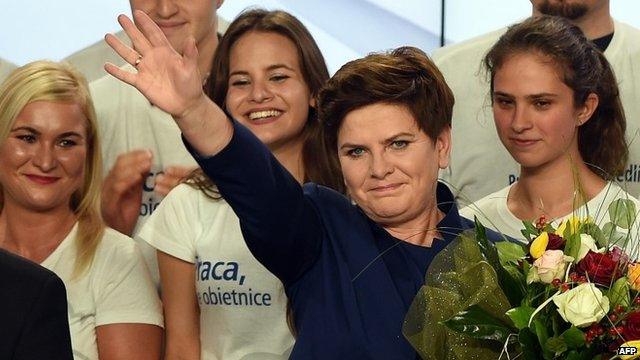Poland elections: Conservative swing grips media
- Published
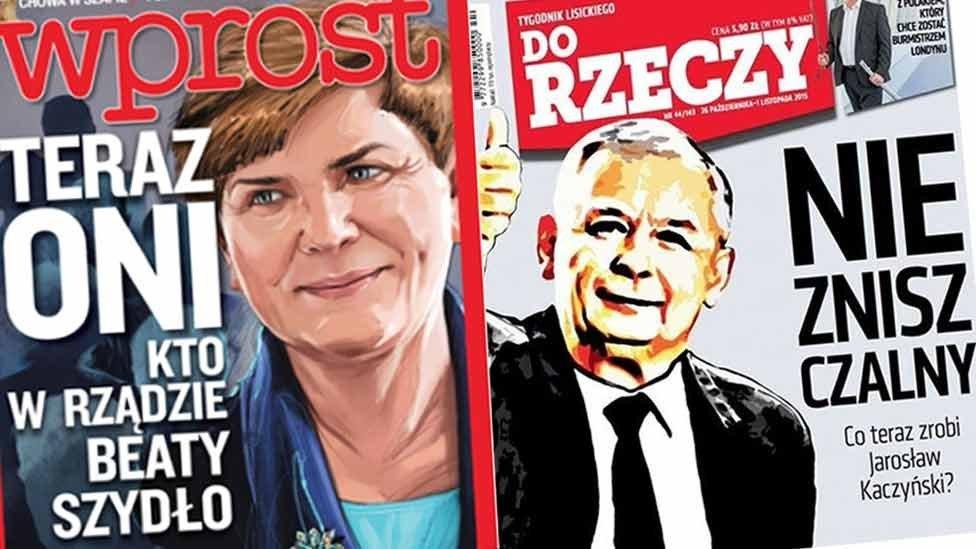
"Indestructible - what will Jaroslaw Kaczynski do now?" says Polish magazine Do Rzeczy
Polish media commentators highlight the challenges facing the country's election winner, the right-wing Law and Justice Party, with some expressing concern about party leader Jaroslaw Kaczynski's plans for constitutional reform.
Jaroslaw Kurski in the centre-left daily Gazeta Wyborcza is worried by the right-wing win, external, recalling how Mr Kaczynski expressed his admiration for the authoritarian government of Viktor Orban in Hungary with the words "Budapest in Warsaw".
In his view, Poland turned against the Civic Platform government - despite eight years of prosperity - because of the government's "lack of leadership" and its unpopular decision to raise the retirement age.
Mr Kurski fears the incoming government's plans to strengthen the presidency will "erode the separation of powers and pose the greatest danger to democracy". He calls for an "alliance of all forces - civil society, the independent media, and parties that are opposed to authoritarianism - to defend liberal democracy".
In the centre-left magazine Newsweek Polska, Tomasz Lis agrees that the country now has "the most right-wing parliament", external since the fall of communism in 1989, with all four parties "representing conservative views".
In his view, it is ironic that the election that saw the former communists lose all their seats has brought to power "people with a Bolshevik mentality".
"Liberal democracy is the loser. Poland has really changed for the worse," he laments.
'Great victory'
Jacek Nizinkiewicz in the centre-right daily Rzeczpospolita is more positive, writing that Mr Kaczynski's party "deserved to win, if only for its thorough and innovative campaign, external", just as Civic Platform "deserved to lose, having run a poor campaign and lost touch with society".
But he says the new government must clarify whether it will reverse pension reform, take a harder line on Russia, and try to control publicly-funded media as it did in 2005-2007. Otherwise Mr Kaczynski "may not be able to build on his great victory".
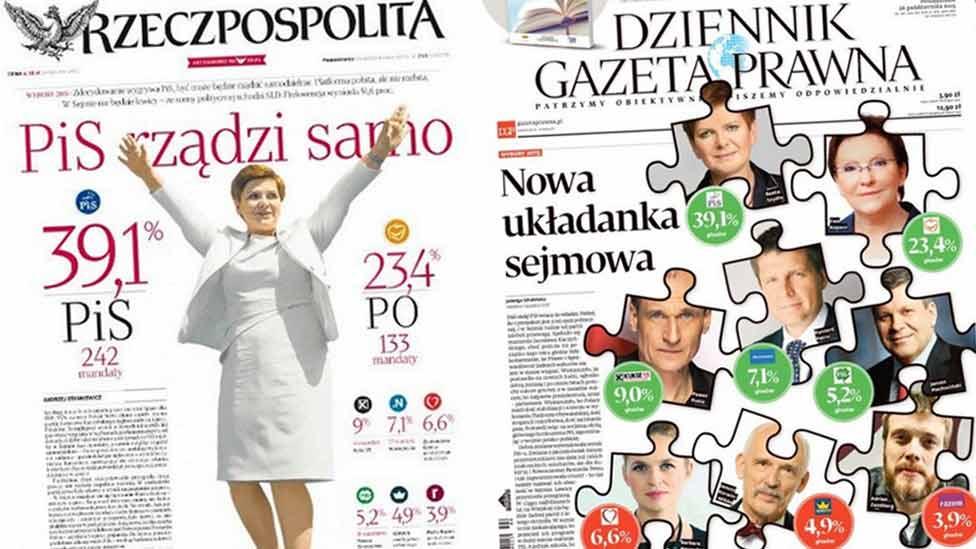
"Law and Justice to govern alone" says Polish daily Rzeczpospolita
Centrist Dziennik Gazeta Prawna says the new government should not only think about implementing its election manifesto, but also "deal with problems that will decide the fate of Poland for decades", external.
These are "demography, migration, maintaining financial credibility abroad" and, above all, "economic innovation to increase productivity and efficiency, in order to compensate for the declining birth rate".
'Narrow gap with West'
Tomasz Siemieniec in the Puls Biznesu financial magazine concurs that there is no time to lose, external - the first party since 1989 to enjoy an absolute parliamentary majority can dispense with "rotten compromises... and concentrate on governing. And there's a lot to do".
He says "reversing unfavourable demographic trends and making effective use of European Union funds" are priorities that can "make Poland a regional economic tiger, narrow the gap with the West".
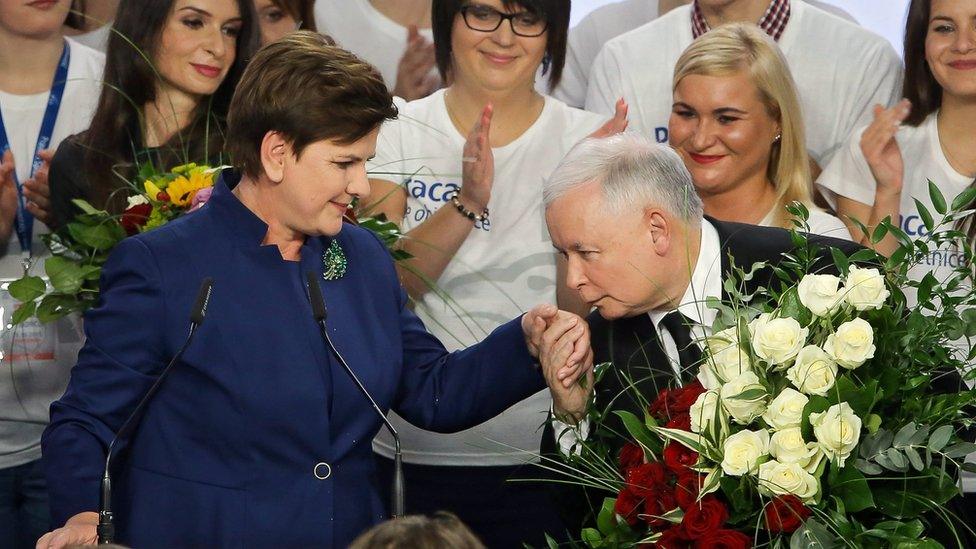
Exit polls suggest Jaroslaw Kaczynski (R) and Beata Szydlo's (L) party got 39% of the vote
In centre-right Wprost magazine, Tomasz Wroblewski agrees that the new government cannot be complacent, external.
"Sometimes elections are a reflection of a deeper social phenomenon that the losers overlooked... the winners used society's need for change to get into power, but this can change quickly if the new team does not understand what this change is all about".
Piotr Semka sees Jaroslaw Kaczynski as the "indestructible" survivor of politics.
In conservative Do Rzeczy magazine, he praises Mr Kaczynski's "hard, patient work", external in building up durable local party groups nationwide.
BBC Monitoring, external reports and analyses news from TV, radio, web and print media around the world. You can follow BBC Monitoring on Twitter, external and Facebook, external.
- Published26 October 2015
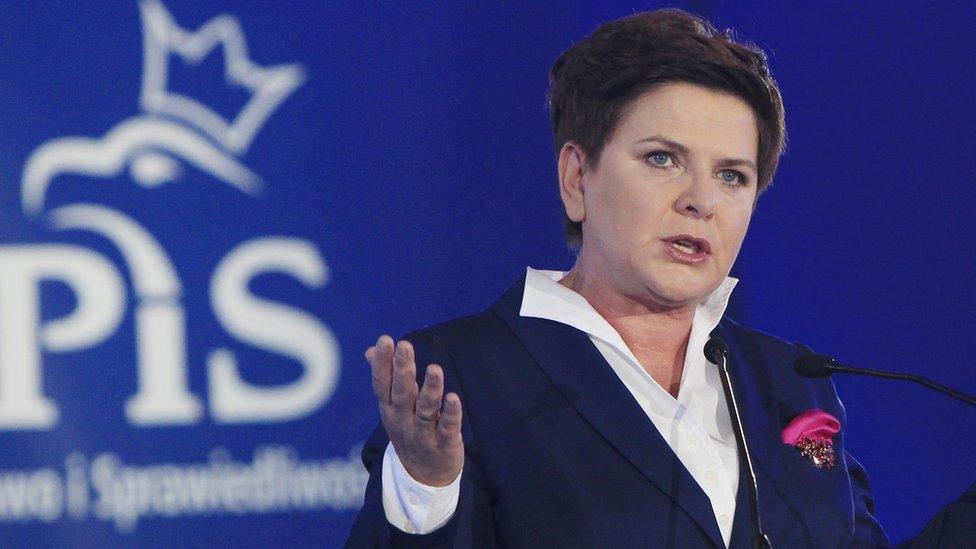
- Published26 October 2015
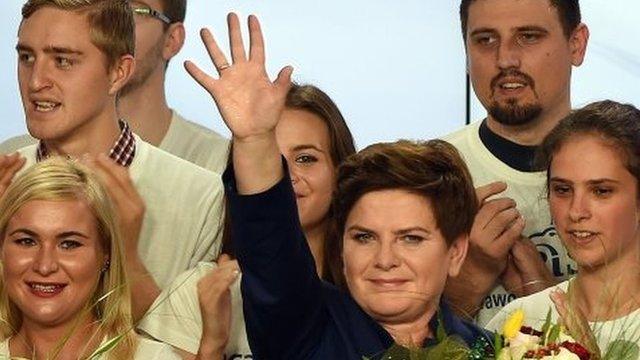
- Published26 October 2015
